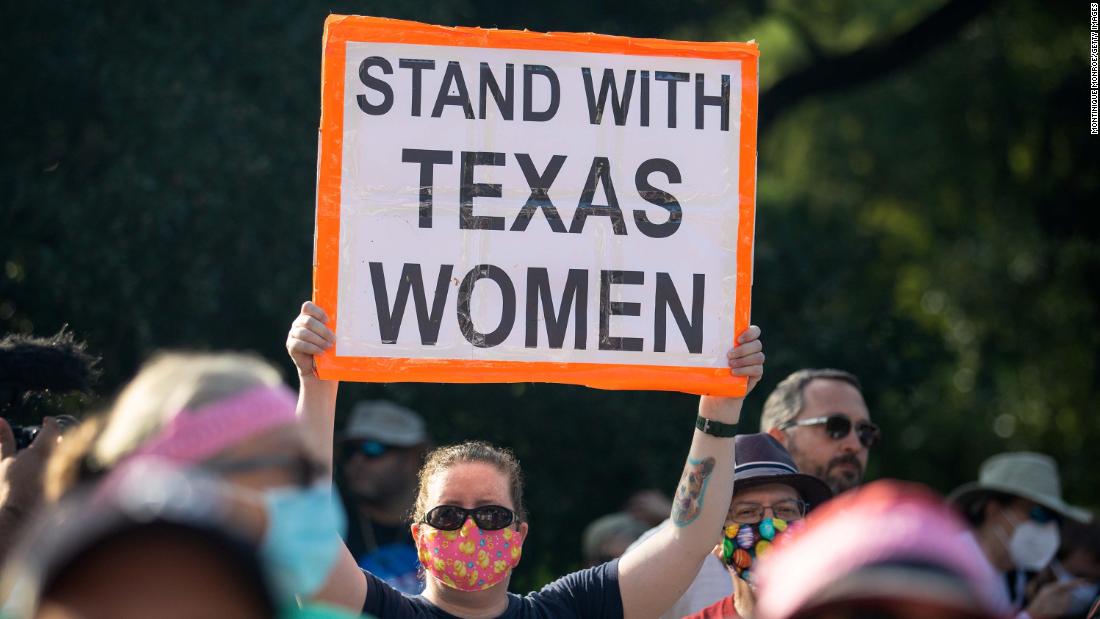The request, though not unexpected, adds to the uncertainty in Texas around access to the procedure. This lawsuit — which was brought by the US Justice Department — is one of several fronts where the legal war over the ban is playing out. It is likely that the fight over the order issued Wednesday blocking the law will end up in the Supreme Court.
Paxton is asking for the appeals court to put an administrative hold on that order as soon as possible, and that by Tuesday, it puts an emergency hold on the order while the appeal is considered.
The morning after the district court’s order, from US District Judge Robert Pitman, came down, some clinics in Texas resumed providing abortions to patients who were beyond six weeks in their pregnancy. They’re doing so at some legal risk, as the Texas law allows enforcement actions to be brought for abortions conducted while a court order blocking the law is in effect, if the court order is later reversed by a higher court.
Rather than task government officials with enforcing the ban, via criminal or administrative penalties, the law deputizes private citizens to bring state court litigation against providers or anyone who assists a woman in obtaining an abortion after fetal cardiac activity is detected — a point usually around six weeks into the pregnancy but often before a woman knows she is pregnant.
To get around this unusual enforcement mechanism, Pitman’s order included prohibitions on state court officials, including judges, from proceeding with state court lawsuits filed against clinics and others accused of violating the ban.
Texas, in its Friday request with the 5th Circuit, said Pitman’s order violated precedent in how it targeted state courts, as well as private individuals seeking to bring enforcement litigation under the abortion ban.
“There is no precedent for the district court’s injunction; it grossly and irreparably interferes with Texas state-court operations,” Texas wrote in the filing. “It also places state courts and their employees under imminent threat of contempt based on the actions of third parties that they cannot control.”
Until Pitman’s order Wednesday, the design of the ban’s enforcement mechanism had been successful in stymieing other legal attempts — by clinics and others — to get the law enjoined.
“Fully aware that depriving its citizens of this right by direct state action would be flagrantly unconstitutional, the State contrived an unprecedented and transparent statutory scheme to do just that,” Pitman wrote Wednesday.
When clinics, in their own lawsuit challenging the ban, previously asked the 5th Circuit to block the law, the appeals court declined, as did the conservative majority of the US Supreme Court.
“From the moment S.B. 8 went into effect, women have been unlawfully prevented from exercising control over their lives in ways that are protected by the Constitution,” Pitman said. “That other courts may find a way to avoid this conclusion is theirs to decide; this Court will not sanction one more day of this offensive deprivation of such an important right.”
This story has been updated with additional details.




More News
Opinion | I’m an Indian Muslim, and I’m Scared to Say So
Opinion | How Should We Honor the Dead of Our Failed Wars?
Opinion | Marjorie Taylor Greene Has a Decision to Make